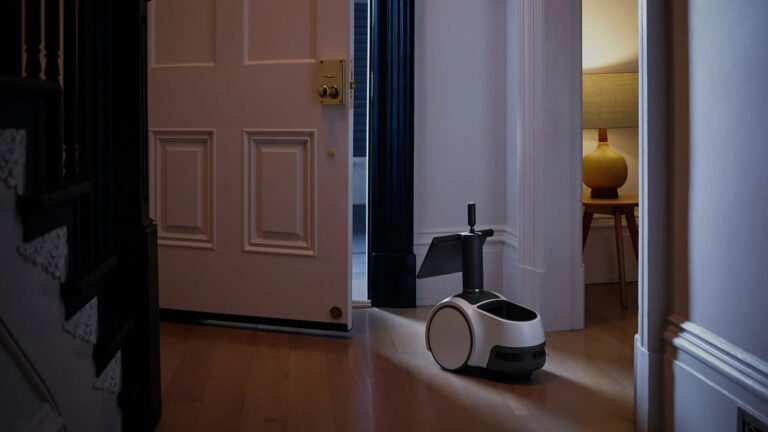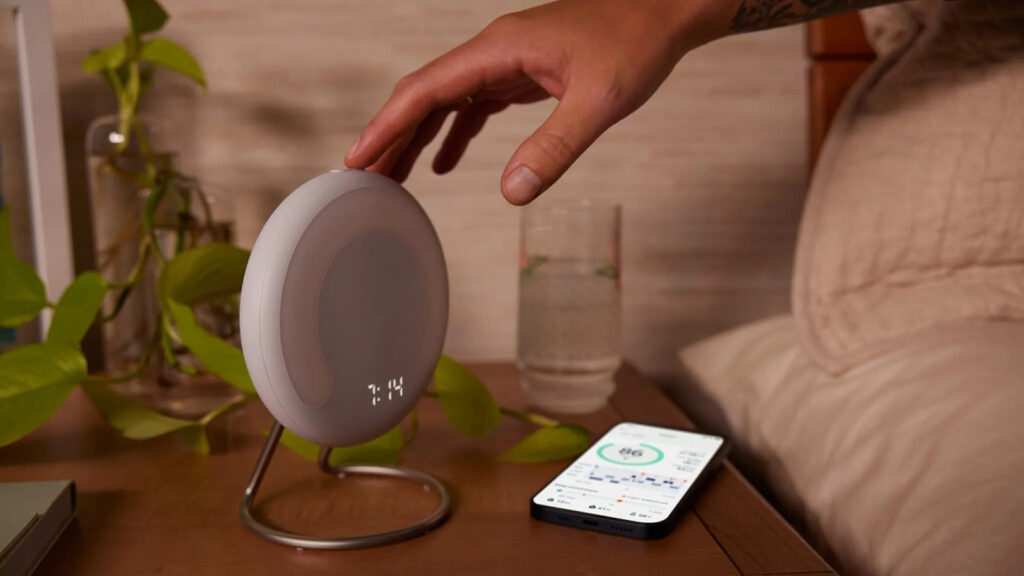
Amazon is using tech to get even closer to its customers.
It introduced a new sleep tracker, Halo Rise, that learns breathing patterns and senses room conditions to help users optimize sleep. Astro, its home robot, will soon be able to recognize doors, windows, pets and furniture in a user’s home.
A new iteration of Blink, its home-security camera, will come with a 360 degree view to capture every corner of a room. And Amazon’s Alexa will soon be smart enough — and understand human conversation well enough — to write its own stories when prompted by a customer.
“We want customers to enjoy the here and now — and I can tell you it’s working,” Dave Limp, senior vice president of devices and services at Amazon, said Wednesday at the company’s annual devices launch event, where it introduces new products and new upgrades that users can expect in the coming months.

This year, Amazon focused on “ambient intelligence,” or the idea that technology keeps running in the background, picking up user’s habits and preferences over time to provide more services and benefits as it learns.
“Technology needs to be personalized and intuitive enough to adapt to you and your environment — not the other way around,” Limp said. “We call this ambient intelligence.”
“A true ambient experience is invisible and works behind the scenes,” said Heather Zorn, the vice president for Alexa. “Everything we show you today is built with those ideas in mind.”
For Amazon’s Alexa, ambient technology means understanding more words, images and context clues. It’s been trained on Amazon’s product catalog so when a user is shopping and says “Alexa, show me the one-shoulder top” it can pick out the right item. It can offer prompts and character choices to kids and then generate stories “using context to inform how the story develops,” Zorn said.
BMW announced Wednesday its next generation voice assistant will be built on Alexa technology.
Astro, Amazon’s home robot introduced at the 2021 devices event, is also learning more about its environment so it can do more for users. Rather than just learning the layout of a home, it’s going to soon be able to learn about objects in the home — where they belong and what they do.
Astro will start with doors and windows, so it can tell a user if one is left open. Then it’ll learn to recognize things like furniture, pet food bowls and pets themselves. If Astro encounters a user’s pet, it will send them a short video of what they’re doing.
Amazon is also arming Astro to act as a virtual security guard. By connecting the robot with Amazon’s Ring security alarm, users can send Astro to investigate if something seems awry and link it to a virtual security guard to monitor, and even respond, to a situation from afar.
Amazon is rolling out the “virtual security guard” partnership to a small group of business customers in the coming months, it said Wednesday.
“Each of these devices, from Astro to Ring to Blink, offer customers more peace of mind,” said Ken Washington, vice president of consumer robotics.
Amazon’s Echo Dot speaker is also getting a new tech upgrade that includes temperature sensors and an “accelerometer,” so a user can tap the device to start and stop the audio. The Echo will also soon double as a Wi-Fi extender with new tech from eero, a home Wi-Fi system.
Amazon’s new Fire TV cube will include sensors that recognize a user’s habits and the time of day, according to Daniel Rausch, the vice president of entertainment devices and services. So it will know to turn on when a user comes down in the morning for a cup of coffee, but won’t shine brightly when they come down for a midnight snack.
The upgraded Fire TV remote will have a voice command that helps users find it when it’s escaped to the depths of the couch cushions.
In the bedroom, Amazon is tracking breathing patterns and room conditions to “change the way you sleep,” according to product manager Njenga Kariuki.
On Wednesday, Amazon introduced Halo Rise, a sleep tracker, wake-up light and smart alarm that uses sensors and machine learning to track a user’s movement and breathing and the light, temperature and humidity in the room. It offers users a sleep summary that they can use to optimize their sleep in the future.
It doesn’t include any cameras or microphones, Kariuki said, and tracks only the breathing patterns of the person closest to the device, so background noise from a partner or pet won’t muddy an individual’s sleep summary.
Halo Rise can also work with Alexa to initiate nighttime routines. So when a user gets into bed, the device will automatically dim the lights, turn off the TV and start a relaxing meditation.
Amazon also introduced the Kindle Scribe, the next generation of its Kindle that enables users to write directly on the page. It mimics the feel of pen on paper because “no one’s looking for a more complicated version of the pen,” joked Limp, senior vice president for devices and services.
Early next year, users will be able to send documents directly from Microsoft Word to Kindle Scribe.
“We invent around a simple premise: the real world matters to customers,” Limp said. “That’s why we work hard to build devices and services that solve problems behind the scenes — so our customers can focus on the here and now.”
Ahead of this year’s devices launch, Amazon announced in August it planned to acquire iRobot, the company behind the Roomba robot vacuum, for $1.7 billion. Once the deal closes, iRobot CEO Colin Angle will continue to run the company.
___
© 2022 The Seattle Times
Distributed by Tribune Content Agency, LLC.
0 comments :
Post a Comment